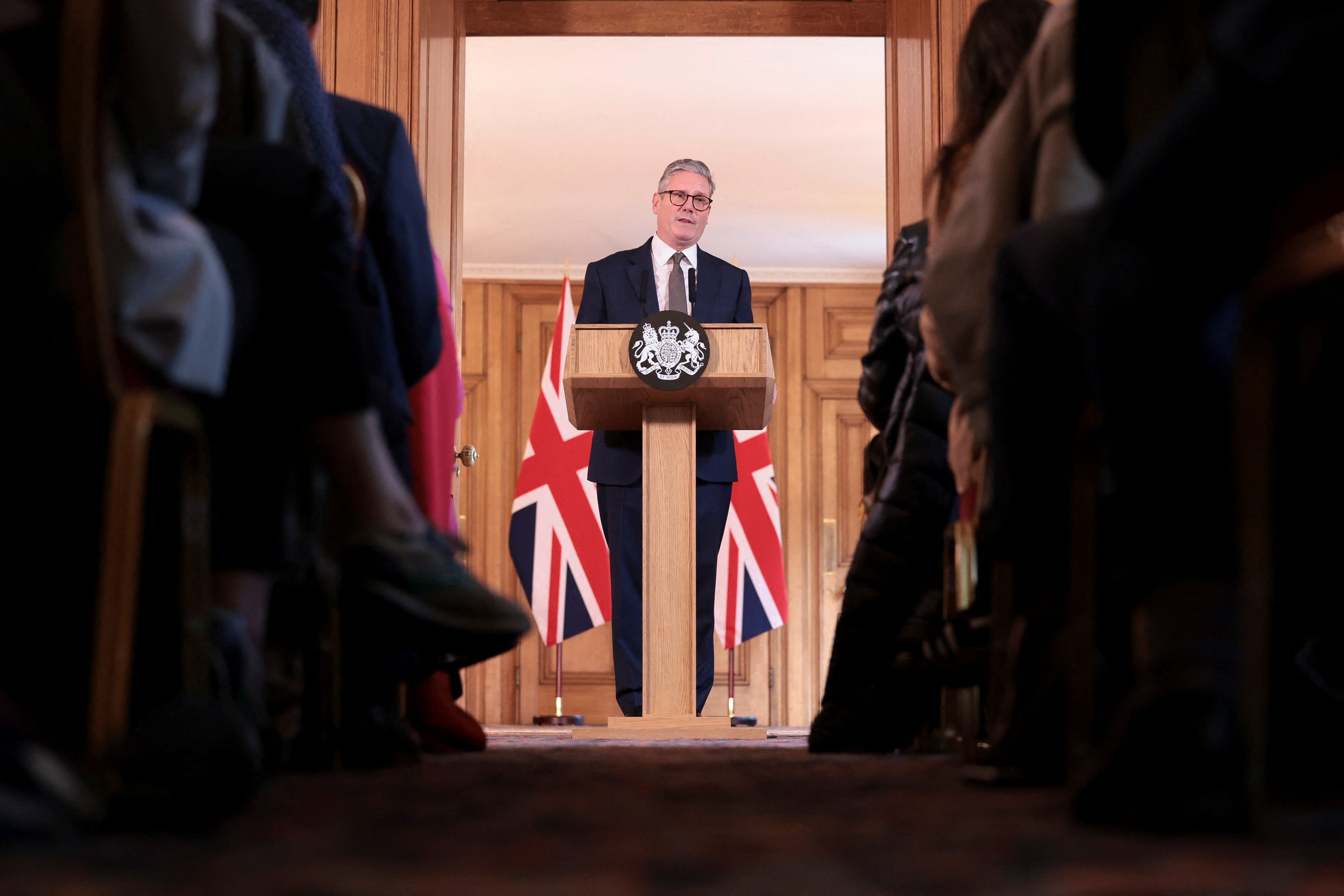For Labour, the next election campaign begins now
After winning almost two thirds of the seats with a third of the votes, there is no guarantee of a second term for Keir Starmer, write Andrew Grice. If voters do not feel the effects of Labour’s policies soon, they may reject the party come 2029


Before the election, Keir Starmer admitted privately: “I have achieved less in the last nine years [since becoming an MP] than at any time in my life.” As one close ally told me: “He felt like he was in prison and couldn’t wait to break out.”
His imprisonment wasn’t wasted: Starmer transformed the Labour Party, won a stonking majority and now has the chance he desperately wanted – to do, as he did as a human rights lawyer and director of public prosecutions (DPP). Despite his daunting inheritance, the new prime minister feels liberated.
Starmer is not pretending this is the “new dawn” Tony Blair could herald after winning his landslide. “It’s not 1997, is it?” said one New Labour veteran as Starmer reprised Blair’s procession past flag-waving Labour aides and friends in Downing Street.
With sluggish growth and no money, Starmer’s in tray is much more challenging than Blair’s was. He is wisely taking advice from Blair, who writes in today’s Sunday Times: “Winning power is all about being The Great Persuader. Exercising power is all about being The Great Chief Executive.”
Blair was a better persuader than Starmer, though one initial mistake he made in office was to “govern by headline” because spinning to the media had worked so well in opposition, when it’s all you have got.
I’ve always believed Starmer would be a better prime minister than leader of the opposition. The early signs are good. Politics as a performance, at which Blair excelled, is not right for these difficult times, so voters might come to respect the unflashy, gritty determination Starmer showed at his first press conference as PM yesterday.
To achieve the “change” he promised, Starmer will have to learn from Blair’s mistakes as well as his successes. Looking back at 1997, Jonathan Powell, who was Blair’s chief of staff, said: “You have to use your political capital at the beginning … The mistake we made was not using that political capital early enough on public sector reform. We were terrified we would not get a second term; if we did something radical, we would lose the party. We would have been better off making those changes early on and then having the results of them.”
Six months into his premiership, Blair told Powell the government machine felt like a shiny Rolls Royce parked outside in Downing Street he was not allowed to drive. New Labour took too long to make the machine work. But Powell told me he does not think Starmer will have the same problem given his experience as DPP (he attended the weekly meeting of Whitehall permanent secretaries) and having the former senior civil servant Sue Gray as his powerful chief of staff.
Powell’s advice to Starmer is to choose three priorities and focus on delivering them. Try to do too much, and the government will just be consumed by reacting to events.
Peter Mandelson, one of New Labour’s architects, told me the key lesson from 1997 is that winning a huge majority “does not in itself make any policy easier to implement or any change easier to achieve. If anything, it just raises expectations and means people think the size of majority equates to the speed of implementation."
First impressions count. “People will reach rapid conclusions about whether a government has got what it takes or not,” Mandelson said. The “difference between words and action” is crucial, so the government must measure output and outcomes and publish the results.
Starmer told his cabinet yesterday it would be judged on actions rather than words. He also took on board Powell’s point by saying his government would have to take “tough decisions … and take them early” and would so “with raw honesty.”
However, Starmer allies admit there is a tension between the need for voters to feel tangible change and the long-term challenges the government wants to address, not least to boost growth, which will inevitably take time.
It will have to do both because – usually – this government will be on probation from the start. Voters are impatient for “change” to amount to more than just changing the faces at the top. Pollsters More in Common found that six out of 10 voters, including Labour supporters, expect to see Labour’s policies make a difference within a year. That’s not long with no cash to splash.
What’s the Starmer government’s story? We don’t know yet. Blair had a narrative and, in the end, found winning a second term easier than he feared. For Starmer, after winning almost two thirds of the seats with a third of the votes, there is no certainty of securing the second half of the “decade of renewal” he wants for the country.
Unlike Blair, Starmer will have dangerous enemies: to his left with the Greens, pro-Palestinian MPs, and possibly the Liberal Democrats; and to his right, with Reform UK and (eventually) the Conservatives.
Morgan McSweeney, the architect of Starmer’s victory, is expected to become his chief adviser with the job of winning next time. For Labour, the next election campaign must start now.






Join our commenting forum
Join thought-provoking conversations, follow other Independent readers and see their replies
Comments